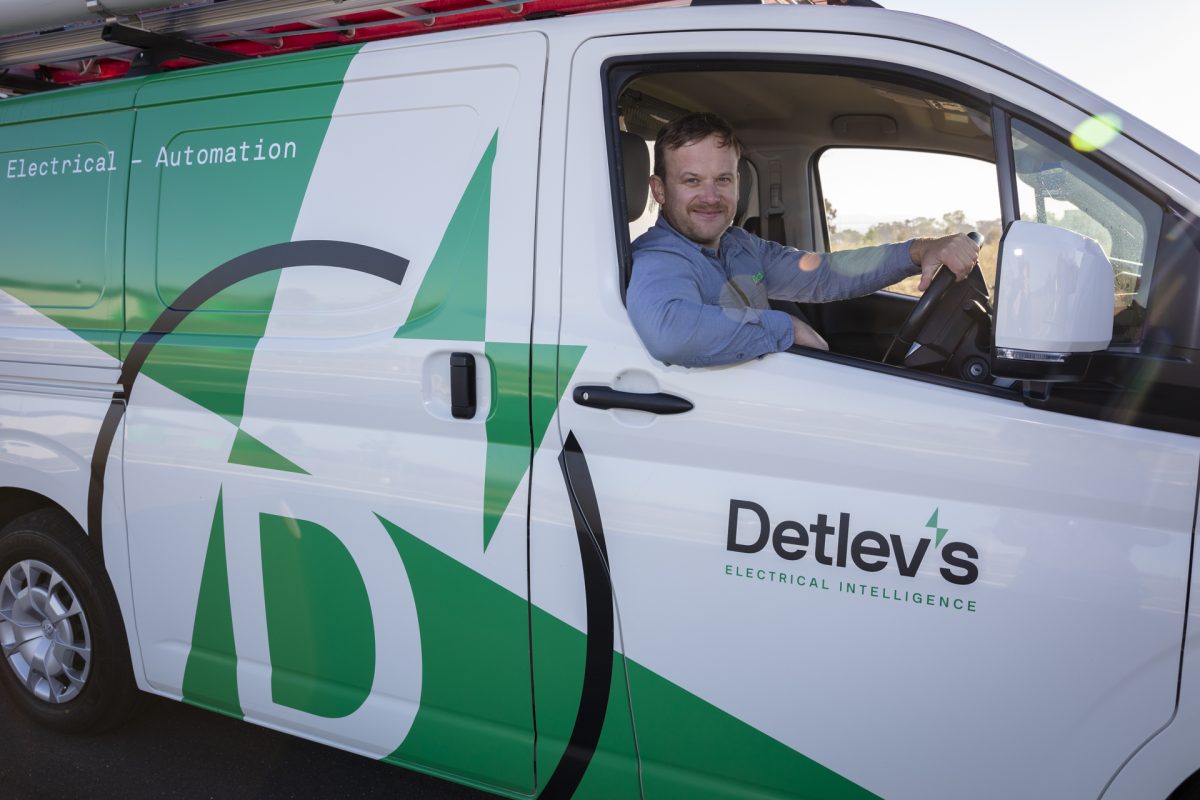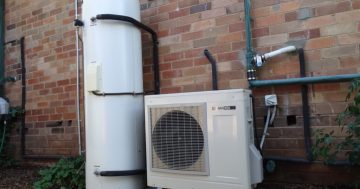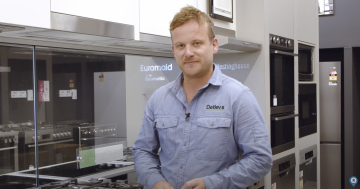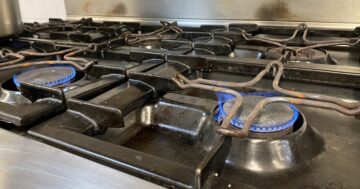
Detlev’s managing director Grae Munro says switching from gas to electric in one go or in smaller steps depends on the household budget. Photo: Thomas Lucraft.
The switch from gas to electrical appliances is generating plenty of interest in Canberra, and experts say now is the time to start the transition.
Detlev’s managing director Grae Munro says switching from gas to electric in one go or in smaller steps depends on the household budget.
“The first question should be whether you will prioritise installing solar panels or transitioning away from gas first,” he says.
“Some people do make the switch to electric in one big chunk, which can be quite a significant cost, and some people choose to do it step-by-step.
“That is replacing one appliance at a time, such as when their gas hot water system malfunctions and they switch to an electric one.”
Grae says there has been a steady growth in demand over the years, driven by demand for renewable energy sources.
“We’re doing approximately 15 to 20 installations of electric appliances a week, but on some days we could do five or six in a single day,” he says.
“A lot of customers are obviously climate-conscious, and there are now great schemes out there to encourage people to get off the gas and start making the switch to electric.”
“There’s never been a better or more economical or opportune time to switch.”
Additionally, more people are drawn to electric stovetops as they are easier to clean and there is less of a safety risk of leaving it switched on.
“With a gas burner, there is a chance that the older generation or kids will inadvertently leave the gas burner on, and that’s quite a dangerous scenario,” Grae says.
“With induction cooking, that will only cook if the pot is actually on the cooktop and it’s turned on – so as soon as that pot or pan is removed, it’s no longer heating.
“This significantly reduces the risk of accidents and enhances overall safety.”
When someone makes the decision to switch, Grae has three pieces of advice.
First, they should do their research to make sure they’re getting the right appliance and that it follows any relevant size restrictions or zoning.
“It may be necessary to conduct a site visit to confirm the feasibility of installation,” he says. “Before you spend a lot of money on the new appliances, you want to make sure that it’s going to actually do the job and that it’s going to physically fit.
“You don’t want to buy a new cooktop and then realise it doesn’t fit!”
His second piece of advice is to get a quote and have a budget. “They should get a quote for the installation, so there are no unexpected expenses,” he says.
Lastly, Grae says “having a clear understanding of the desired outcome and ensuring the product is supported are also vital considerations”.
But for those who cannot switch to electric appliances, or want to go step-by-step, Grae has more advice to reduce gas use.
People can switch to more efficient gas appliances, have a gas leak detection done to make sure gas isn’t leaking into the property, adjust the temperature settings on their heaters or turn their gas heat pumps off in winter if they have a swimming pool.
There are several rebates and grants available for households, businesses and community groups, such as the Sustainable Household Scheme, Home Energy Support: Rebates for Homeowners and the Renters’ Home Energy Program.
Information on grants and rebates can be found on the ACT Government website.




















